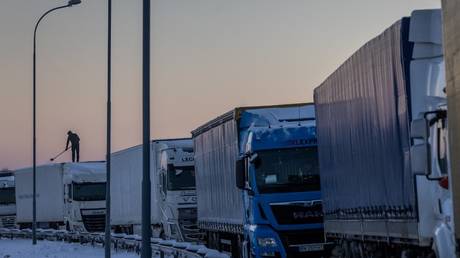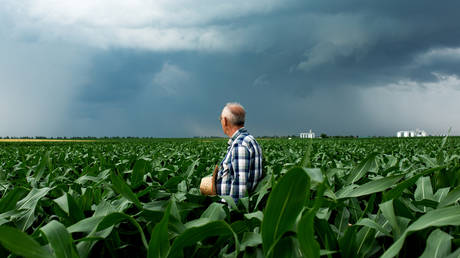ARTICLE AD BOX
Letting the country’s products into the bloc might lead to an “oversupply” crisis, the EU commissioner for agriculture has warned
The European Union’s agriculture sector might face another “oversupply” crisis this year if it allows Ukraine to freely export its goods into the bloc, EU Commissioner for Agriculture Janusz Wojciechowski told Polish RMF 24 Radio on Friday.
Early in its conflict with Moscow, the bloc suspended tariffs on Ukrainian exports in a bid to shore up Kiev. The measure saw cheap grain from Ukraine flowing into the EU, with farmers in neighboring countries unable to compete with the imported goods. The crisis prompted Brussels to impose a ban on Ukrainian grain exports in May 2023, which stayed in place until September.
Once the ban was lifted, Poland, Hungary, Slovakia, and Romania reinstated the restrictions at a national level, prompting Ukraine to file a now-suspended complaint with the World Trade Organization.
The EU Commission is now debating whether the free trade rules for Ukraine should be extended to 2025. Wojciechowski insisted he would not support the extension unless it included protective clauses and quantitative restrictions on certain goods.
Read more Poland demands EU limits on Ukrainian truckers
Poland demands EU limits on Ukrainian truckers
“This is my big task for 2024, to ensure that the new regulation, if issued, introduces sufficiently strong protective clauses so that there is no crisis related to oversupply again,” he said.
The commissioner warned that imports of sugar and poultry from Ukraine were already growing “in a way that threatens the competitiveness of the EU sector, including Polish poultry and sugar production,” Wojciechowski, who is himself a Pole, added.
Poultry and sugar producers have been complaining to Brussels about the excess supply, so the commissioner argued that Ukrainian exports should therefore be sent elsewhere.
“The European Union’s efforts should be to support Ukrainian exports to third countries,” he said.
He also argued that opening the European market to Ukraine would somehow “help Russia consolidate its military and economic gains” from the ongoing conflict, allegedly by successfully pushing Ukraine away from Asian markets.
Read more Ukrainian membership threatens EU farmers – Poland
Ukrainian membership threatens EU farmers – Poland
EU Commission President Ursula von der Leyen supports extending the free trade regime for Kiev, RMF 24 reported, saying she and some other officials are pointing to free trade principles and a need to support Kiev as their reasons.
Von der Leyen, along with Trade Commissioner Valdis Dombrovskis, also reportedly want to prevent the bloc from being able to impose a temporary embargo on Ukrainian goods in the event of a sudden flood of exports.
Brussels’ policy on relaxing trade with Kiev has already led to squabbles between Ukraine and its EU neighbors. Apart from the grain dispute in September, Kiev also locked horns with Warsaw over freight transport services.
Before February 2022, Ukrainian haulage companies had to obtain permits to enter and operate within the EU. This permit scheme was scrapped shortly after the conflict began. In November 2023, Polish truckers started blocking the busiest border crossings with Ukraine – as part of a major protest against the EU’s soft trade policy towards Kiev. Their protest was soon joined by farmers.
In December, Poland demanded EU permits for Ukrainian truckers be reintroduced. This demand was then backed by Hungary, Slovakia, the Czech Republic, and Croatia, Poland’s IAR news agency reported at the time.
.png)
 1 year ago
12
1 year ago
12








 English (US)
English (US)